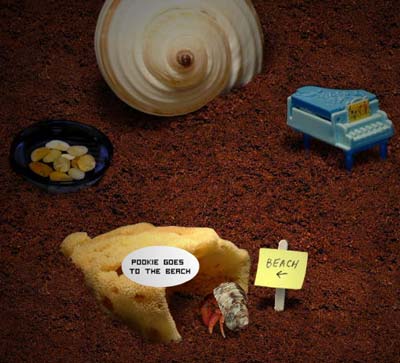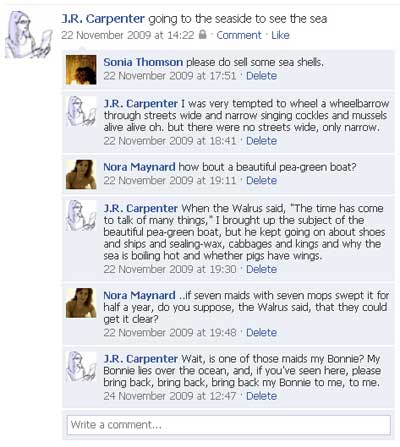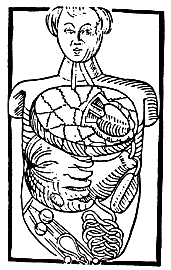Pookie is a a biological, digital, quasi-fictional manifestation of Montreal artist Ingrid Bachmann’s imagination. And, for a hermit crab, Pookie sure gets around. Bachmann and Pookie collaborated on The Digital Crustaceans project at StudioXX, Montréal, Québec in 2002. That project lives online here: http://www.digitalhermit.ca/. Bachmann and Pookie collaborated again on Digital Crustaceans v.0.2: Homesteading on the Web at Gallery Articule, Main Gallery, Montréal, Québec, April 4 – May 4 2003.
Pookie and I hung out quite a lot the summer of 2009 and a number of projects emerged as a result. We were in a show together at Arnolfini in Bristol in May, 2010, and have a book coming out any moment now from TRAUMAWIEN.
Our latest adventure – an entry on the Excerpts from the Chronicles of Pookie & JR has just been added to the Electronic Literature Authoring Software Website edited by Judy Malloy.

[screenshot from The Digital Crustaceans project, Ingrid Bachmann, 2002]
The Electronic Literature Authoring Software Website is resource for teachers and students of new media writing, who are exploring what authoring tools to use, for new media writers and poets, who are interested in how their colleagues approach their work, and for readers, who want to understand how new media writers and poets create their work, the Authoring Software project is an ongoing collection of statements about authoring tools and software. It also looks at the relationship between interface and content in new media writing and at how the innovative use of authoring tools and the creation of new authoring tools have expanded digital writing/hypertext writing/net narrative practice in this vibrant contemporary creative writing field.
Begun in conjunction with the 2008 Electronic Literature Organization Conference, this resource was also a part of the Computers and
Writing 2009 Online Sessions hosted by UC Davis.
Visit Excerpts from the Chronicles of Pookie & JR on the Electronic Literature Authoring Software Website.
![J. R. Carpenter GENERATION[S]](http://traumawien.at/gfx/CarpenterCover_sans.png)


